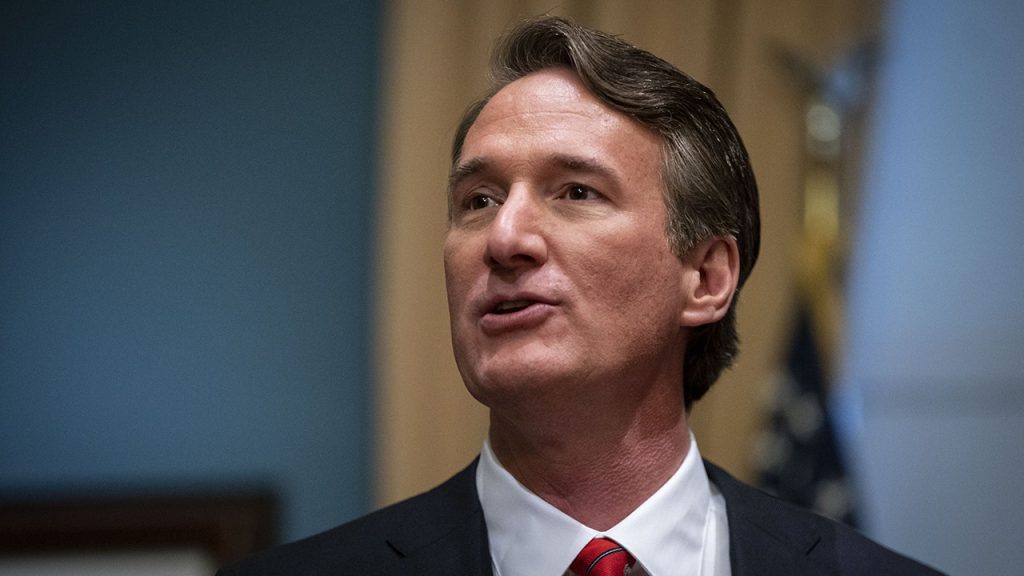Budget negotiators in Virginia, along with Governor Glenn Youngkin, have reached a compromise on the next two-year state spending plan, which includes a 3% raise for state employees and teachers without raising taxes, potentially risking a veto from Youngkin. The agreement, which awaits approval during a special session scheduled to begin on Monday, also includes additional state revenues to pay for Democratic spending priorities and to address various needs such as restraining increases in tuition for state universities and colleges, assisting individuals with mental illness, and covering increased costs to Virginia’s Medicaid program.
Details of the new spending plan are expected to be made available to lawmakers and the public on Saturday. The $188 billion budget will not expand Virginia’s sales tax to digital services, a proposal that was originally suggested by Youngkin. The governor’s proposal included cutting tax revenues by $1 billion and closing the “big tech loophole,” which exempts video streaming and audio services from the tax levied on goods. While Democrats rejected some of Youngkin’s tax proposals, they initially kept the expansion to digital services, which would have raised an additional $1 billion. This prompted Youngkin to threaten to veto the budget, potentially leaving the state without funds to operate on July 1 – a first in Virginia’s history.
The compromise agreement also does not include a requirement by the Democratic-controlled assembly for Virginia to rejoin the Regional Greenhouse Gas Initiative, a multistate compact aimed at reducing emissions of greenhouse gases. Youngkin had pushed the State Air Pollution Control Board to withdraw the state from the compact due to concerns about the costs of surcharges on carbon pollution that consumers would pay in their electric bills. Additionally, the proposed budget deal does not cover electronic skill games, which has led to participating convenience stores halting the sale of Virginia Lottery tickets until Youngkin and lawmakers can agree on a path forward for skill games.
The compromise reached on Thursday must still pass review by members of the House and Senate, with Democrats holding a slim majority in each chamber. Despite the negotiations and agreement on various budget priorities, such as the raises for state employees and teachers, there are still additional factors to consider, such as the exclusion of certain tax proposals and requirements related to environmental initiatives. Moving forward, lawmakers will need to navigate these complexities and ensure the final budget reflects the needs and priorities of the state while maintaining the necessary support for approval.
Overall, the compromise on the next two-year state spending plan in Virginia represents a significant step towards meeting key priorities such as providing raises for state employees and teachers without raising taxes. The agreement also addresses various needs, including funding for mental health services, Medicaid programs, and college tuition. However, challenges remain, particularly in areas such as tax policies, environmental initiatives, and the future of electronic skill games in the state. As lawmakers move forward with reviewing and potentially approving the budget, they will need to carefully consider these factors and ensure that the final plan reflects the best interests of Virginia and its residents.













